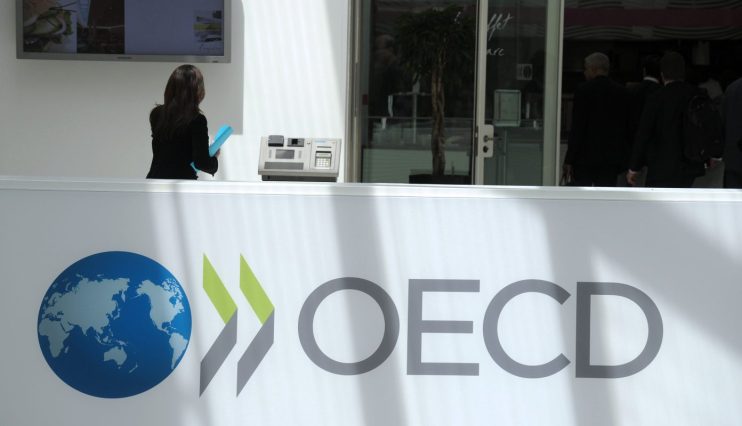UK economy gets another growth upgrade but OECD warns on ‘sticky’ inflation

The UK has received another growth upgrade following its strong start to the year, this time from the Organisation for Economic Co-operation and Development (OECD).
The Paris-based organisation now expects the UK to grow 1.1 per cent this year, up from a previous projection of 0.4 per cent.
This means the economy is on track to grow as fast as both France and Canada in 2024. However, it will still trail the US, which is expected to grow 2.6 per cent.
Looking into 2025, the OECD projects growth of 1.2 per cent, a 0.2 percentage point upgrade on its earlier forecasts and roughly in line with the European average.
The upgrades come after “relatively robust” growth earlier in the year, when the UK was among the fastest growing economies in the G7.
Chancellor Rachel Reeves “welcomed” the updated forecasts, but said there was “more to do” to help deliver the government’s target of the highest growth rate in the G7.
“Next month’s Budget will be about fixing the foundations, so we can deliver on the promise of change and rebuild Britain,” she said.
Across advanced economies, the OECD said: “Real wage growth is now supporting household incomes and spending, though purchasing power has yet to fully return to pre-pandemic levels in many countries”.
While the UK economy is expected to have relatively strong growth, the OECD warned that it would also suffer from the highest inflation rate in the G7 this year and next.
The OECD forecast that inflation would average 2.7 per cent in 2024 before easing to 2.4 per cent, down from over seven per cent in 2023.
“The prices of over half the items in the United Kingdom inflation basket were still growing at an annual rate above three per cent in July 2024…This points to some lingering underlying pressures,” it said.
The OECD also warned that services inflation was proving “particularly sticky”. It noted that if core goods price inflation remained unchanged, annual services inflation would have to fall by 2.5 percentage points in the UK to bring core inflation back to the target.
Although it said there was scope for further rate cuts, it suggested they needed to be “carefully judged” to ensure inflationary pressures remain “durably contained”.
The OECD’s outlook broadly supported the view that the global economy is on track for a soft landing, with growth expected to stabilise around 3.2 per cent while inflation steadily returns to target.
Nevertheless, it still warned of a number of “significant risks” to the global economy over the medium term.
“Persisting geopolitical and trade tensions could increasingly damage investment and raise import prices. Growth could slow more sharply than expected as labour markets cool, and deviations from the expected smooth disinflation path could trigger disruptions in financial markets,” it warned.